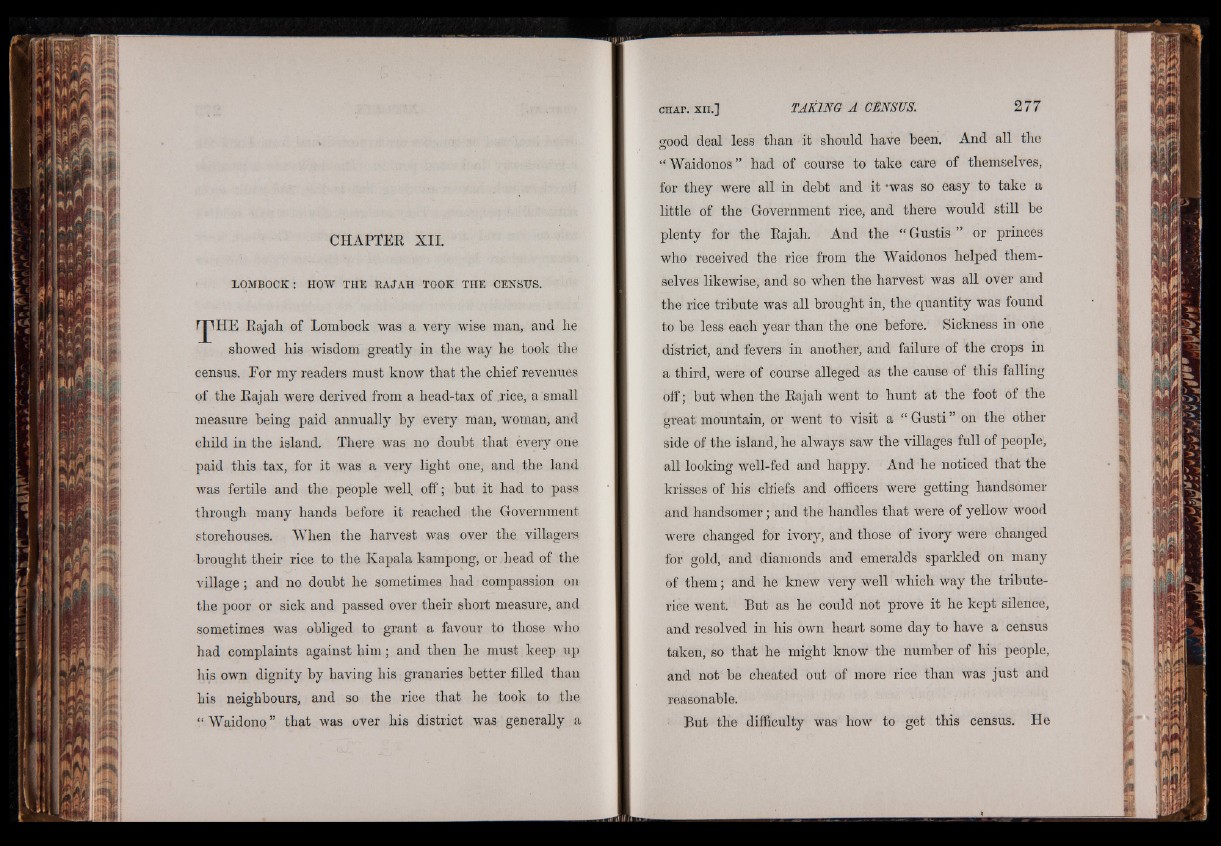
CHAPTER XII.
LOM BO CK : HOW TH E R A JA H TOOK TH E CENSUS.
rjiHE Rajah of Lombock was a very wise man, and he
showed his wisdom greatly in the way he took the
census. Eor my readers must know that the chief revenues
of the Rajah were derived from a head-tax of .rice, a small
measure being paid annually by every man, woman, and
child in the island. There was no doubt that every one
paid this tax, for it was a very light one, and the land
was fertile and the people well, off ; hut it had to pass
through many hands before it reached the Government
storehouses. When the harvest was over the villagers,
brought their rice to the Kapala kampong, or head of the
village ; and no doubt he sometimes had compassion on
the poor or sick and passed over their short measure, and
sometimes was obliged to grant a favour to those who
had complaints against him ; and then he must keep up
his own dignity by having his granaries better filled than
his neighbours, and so the rice that he took to the
“ Waidono ” that was over his district was generally a
good deal less than it should have been. And all the
“Waidonos” had of course to take care of themselves,
for they were all in debt and it *was so easy to take a
little of the Government rice, and there would still be
plenty for the Rajah. And the “ Gustis ” or princes
who received the rice from the Waidonos helped themselves
likewise, and so when the harvest was all over and
the rice tribute was all brought in, the quantity was found
to be less each year than the one before. Sickness in one
district, and fevers in another, and failure of the crops in
a third, were of course alleged as the cause of this falling
off; but when the Rajah went to hunt at the foot of the
great mountain, or went to visit a “ Gusti ” on the other
side of the island, he always saw the villages full of people,
all looking well-fed and happy. And he noticed that the
krisses of his chiefs and officers were getting handsomer
and handsomer; and the handles that were of yellow wood
were changed for ivory, and those of ivory were changed
for gold, and diamonds and emeralds sparkled on many
of them; and he knew very well which way the tribute-
rice went. But as he could not prove it he kept silence,
and resolved in his own heart some day to have a census
taken, so that he might know the number of his people,
and not be cheated out of more rice than was just and
reasonable.
But the difficulty was how to get this census. He